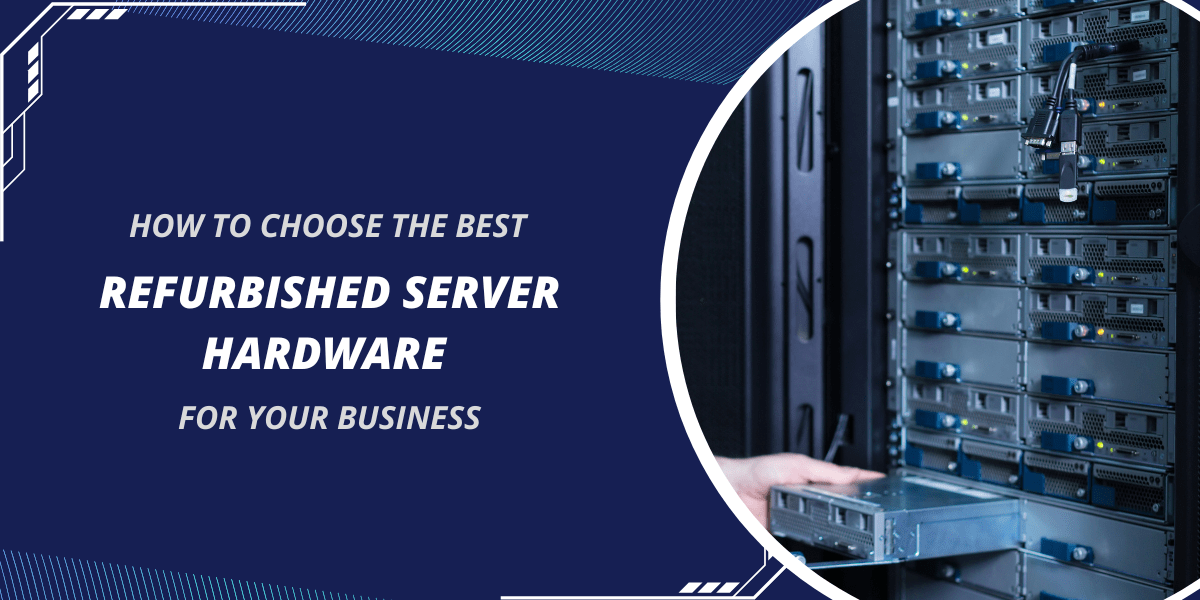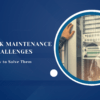How to Choose the Best Refurbished Server Hardware for Your Busines?
When businesses look to enhance their IT infrastructure, they often consider refurbished server hardware an affordable option. Not only does it provide a cost-effective solution for upgrading equipment, but it also contributes to sustainability by reusing quality hardware. However, selecting the best refurbished server hardware for your company can be challenging, especially if you’re unfamiliar with server technology. This guide will explore key factors to consider when choosing the right refurbished server hardware for your business.
Capacity and Performance Requirements
Before you even think about buying refurbished server equipment, assessing your business’s storage needs, processing power and memory requirements is essential. For storage needs, consider how much data you need to store now and shortly. A small business with moderate storage needs may only require a server with a lower capacity, while a growing business dealing with large files may need more storage. When it comes to processing power, think about the kind of tasks your server will need to handle. If your business only needs a server for basic tasks, a lower-spec model may be sufficient.
However, for tasks like data analysis or running large databases, you will need more processing power. Additionally, if your company uses heavy applications or virtual machines, you will require more memory. A server with enough RAM ensures smooth operation without slowdowns, especially when running multiple applications simultaneously. Evaluating these requirements will help you choose a server that is neither too weak nor too powerful for your needs, ensuring efficiency without overspending.
Compatibility and Integration
One of the critical considerations when buying refurbished server hardware is its compatibility with your existing IT infrastructure. If the hardware you purchase cannot integrate with your network, operating systems, or software applications, it could lead to additional costs and complications. For Operating system compatibility, make sure the refurbished server supports the operating system you are using. Whether it’s Linux, Windows, or another OS, this compatibility is crucial for smooth operation.
In addition, check for Software compatibility to ensure that any software your company relies on will run smoothly on the server. Make sure to check for any specific hardware requirements the software may have. Finally, think about Future upgrades and whether the server can accommodate additional components like more RAM or storage as your business grows, without needing a complete replacement. Ensuring compatibility in these areas will save you time and effort during installation and integration with your existing systems.
Vendor Reputation and Support
The reputation and reliability of the vendor selling the refurbished server hardware cannot be overlooked. Refurbished equipment, though cost-effective, can come with hidden risks if not sourced from a trusted vendor. Look for a vendor with a strong track record of supplying quality refurbished equipment, as they are more likely to provide reliable products.
Additionally, ensure that the vendor offers a solid warranty and support for the refurbished server hardware, giving you peace of mind if something goes wrong. Adequate post-sale support, including technical assistance and hardware maintenance options, is also essential. By choosing a reputable vendor, you can be more confident that the refurbished equipment will meet your expectations and provide value for money.
Total Cost of Ownership
When considering refurbished server hardware, it’s not just about the initial purchase price. While refurbished servers tend to be cheaper than new ones, you should factor in the total cost of ownership (TCO), which includes maintenance costs, as older equipment may require more frequent repairs, so it’s important to assess whether you will need to invest in additional maintenance. Also, consider the energy consumption of older servers, which might consume more power, leading to higher energy costs. Make sure to evaluate the efficiency of the refurbished hardware.
Lastly, think about the downtime costs. If the refurbished server fails, the downtime could significantly affect your business, so ensure you have a contingency plan to minimize the impact of hardware failure. By considering all these aspects, you can understand the true cost of the hardware and make a more informed decision.
Future Scalability and Upgradability
As your business grows, so will your IT infrastructure needs. Therefore, it’s important to choose refurbished server hardware that offers scalability and can be easily upgraded in the future. Look for scalable storage options, which allow you to add more storage as your business’s data needs grow.
Additionally, consider servers with expandable processing power that enable you to add more processors or upgrade the CPU to meet future performance demands. Also, ensure the server allows for RAM expansion, so you can upgrade memory easily to handle larger workloads as your business scales. Opting for equipment that can grow with your business can save you money in the long term by avoiding the need to replace the entire system when your requirements increase.
Putting It All Together
As your business grows, so will your IT infrastructure needs. Therefore, it’s important to choose refurbished server hardware that offers scalability and can be easily upgraded in the future. Look for scalable storage options, which allow you to add more storage as your business’s data needs grow. Additionally, consider servers with expandable processing power that enable you to add more processors or upgrade the CPU to meet future performance demands.
Also, ensure the server allows for RAM expansion, so you can upgrade memory easily to handle larger workloads as your business scales. Opting for equipment that can grow with your business can save you money in the long term by avoiding the need to replace the entire system when your requirements increase. At Agrius IT, we help businesses find the right refurbished server hardware that offers both scalability and cost efficiency, ensuring your IT infrastructure can evolve alongside your growth.
Conclusion
Refurbished server hardware offers businesses an excellent way to upgrade their IT infrastructure without spending excessive amounts of money. However, it’s important to evaluate the equipment carefully to ensure that it meets your business needs both now and in the future. By focusing on the factors mentioned above, such as performance, compatibility, vendor reputation, cost, and scalability, businesses can find a solution that maximizes their savings while maintaining high-quality performance.
faq
Refurbished server hardware offers a cost-effective solution for businesses looking to upgrade their infrastructure without the high costs associated with brand-new equipment. Additionally, refurbished servers are more sustainable, as they reduce electronic waste.
The reliability of refurbished servers depends on the vendor’s track record. It’s important to purchase from a reputable vendor that thoroughly tests the equipment before selling it. A warranty and ongoing support are also key indicators of reliability.
Before purchasing, verify that the refurbished hardware supports your current operating system, software applications, and networking infrastructure. You may need to consult with a professional to ensure full compatibility.
Refurbished servers may require slightly more maintenance than new ones, but they are generally much more affordable upfront. It’s important to consider the long-term costs, such as energy consumption and potential repairs, when calculating the total cost of ownership.
Many refurbished servers are designed with scalability in mind. Before purchasing, check that the hardware allows for future upgrades, such as adding more storage, RAM, or processing power to meet your business’s growing demands.



